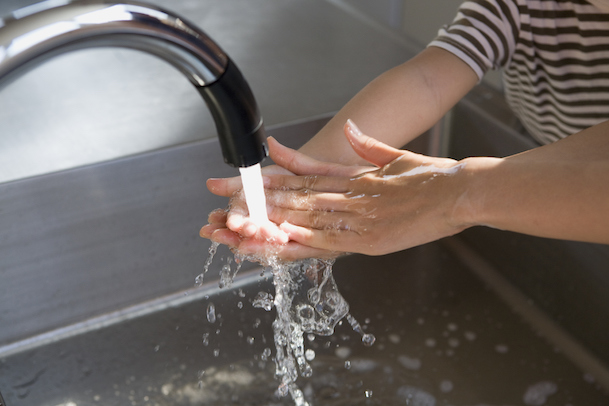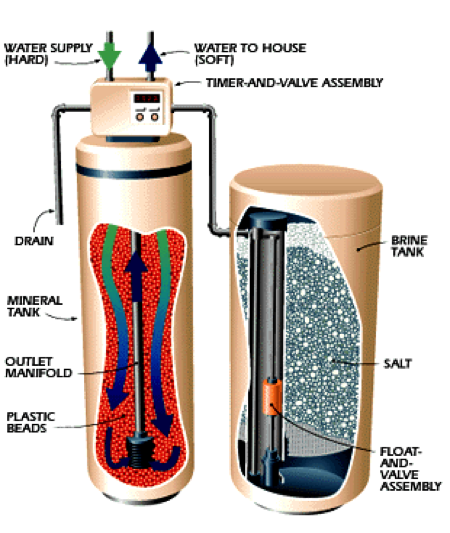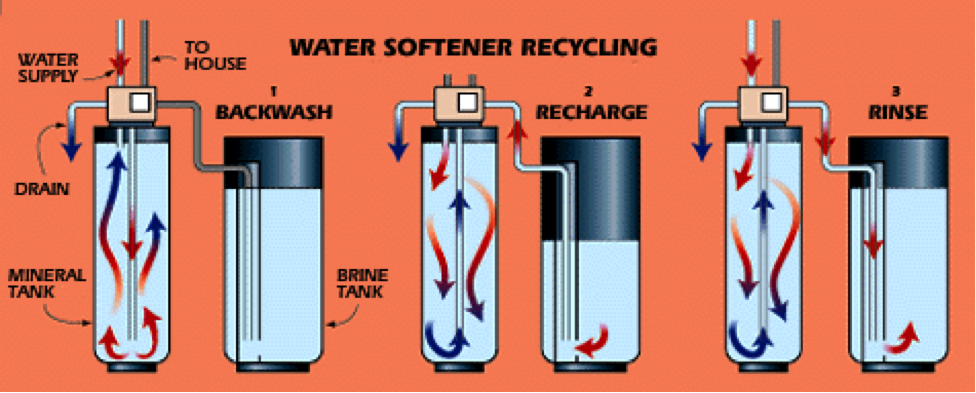
While most of us are aware that soft water is preferred over hard water, most people don’t understand how the process of ion exchange truly works. In this article, we explore why water becomes hard, how to detect hard water, and how water can improve through processing in a water softener.
How Water Becomes Hard
When water passes through the ground, it picks up residue and minerals from the materials it passes. In some cases, this means that the water becomes contaminated and is therefore unsafe to drink and difficult to wash in.
In most cases, water becomes too rich in magnesium and calcium, which makes water “hard”. Hard water makes it difficult to lather soaps, and it can also corrode and be harmful to your dishwashers, laundry systems, skin, and hair. Soft water, however, contains few to no extra minerals and is, therefore, gentler to your fabrics, water systems, and body.
Signs Your Water Is Hard
Below are just some of the common signs your water is hard:
- Water spots on dishes
- Film in bathtubs, sinks, and around faucets
- Corrosion of appliances
- Lime scale build up
- Soap and shampoos will not lather
- Appliances are breaking down
- Dingy or foul-smelling laundry
Hard water can also cause magnesium and calcium to build up in your pipes, causing water flow issues that can reduce efficiency and cause issues in your home.
Water Hardness Solutions
To solve issues associated with water hardness, you’ll need to remove magnesium and calcium from your water, and the best way to do this is through a water softener. Water softeners are systems that, when applied to your water supply, remove magnesium and calcium, softening your water.
How Do Water Softeners Work?
In most cases, water softeners “trade” magnesium and calcium minerals for sodium in an ion exchange within a mineral tank. The mineral tank is filled with salt beads that carry a negative charge, whereas calcium and magnesium carry positive charges. Due to these opposite charges, calcium and magnesium cling to the beads as the water passes through the tank, leaving the water soft through saturation of salt.

The Parts of a Water Softening System
Water softeners are made up of a mineral tank, a brine tank, and a control valve. The two tanks are separated but work together in the process to soften water.
- Mineral tanks: Where water is softened through the ion exchange over beads.
- Brine tanks: Where water is saturated with salt and becomes brine.
- Control Valve: Determines when its time to clean the beads and regenerate.
The Regeneration Process
Once the beads in the mineral tank have attracted magnesium and calcium, the sodium filled water is carried from the brine tank to the mineral tank. In the recharging process, the sodium collects on the beads and replaces the calcium and magnesium that is disposed of through the drain. Once this phase is completed, the mineral tank is emptied of leftover brine, and the process begins again.
Older water softener systems use a timer to know when to regenerate, whereas newer systems use a computer-controlled meter that determines when regeneration is needed.
Let’s break it down:
- Backwash: The valve reverses water flow in the tank to flush debris, which is eliminated through the drain.
- Recharge: Brine is pumped into the mineral tank where the salt forces magnesium and sodium from the beads.
- Rinse: The tank is filled and rinsed with water. This leaves the beads coated with salt, which allows the process to begin again.

How Harris Plumbing Can Help
At Harris Plumbing, we have helped countless families to learn more about the many benefits of soft water. Our incredible plumbers are qualified to assess hard water issues and to provide solutions that fit the unique needs of each household.
With a leading manufacturers warranty program and our professional installation, you get a winning combination to ensure that your family enjoys the safest, best-tasting water for drinking, bathing, and household use.
For more information about the water softening systems offered at Harris Plumbing, please visit our Water Softeners & Iron Filters page.

